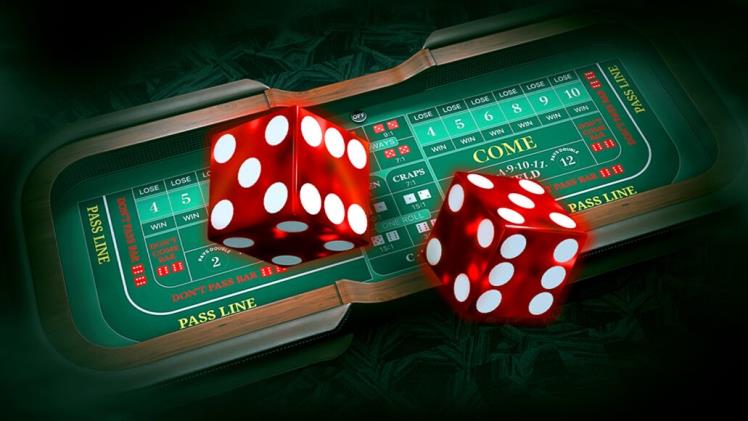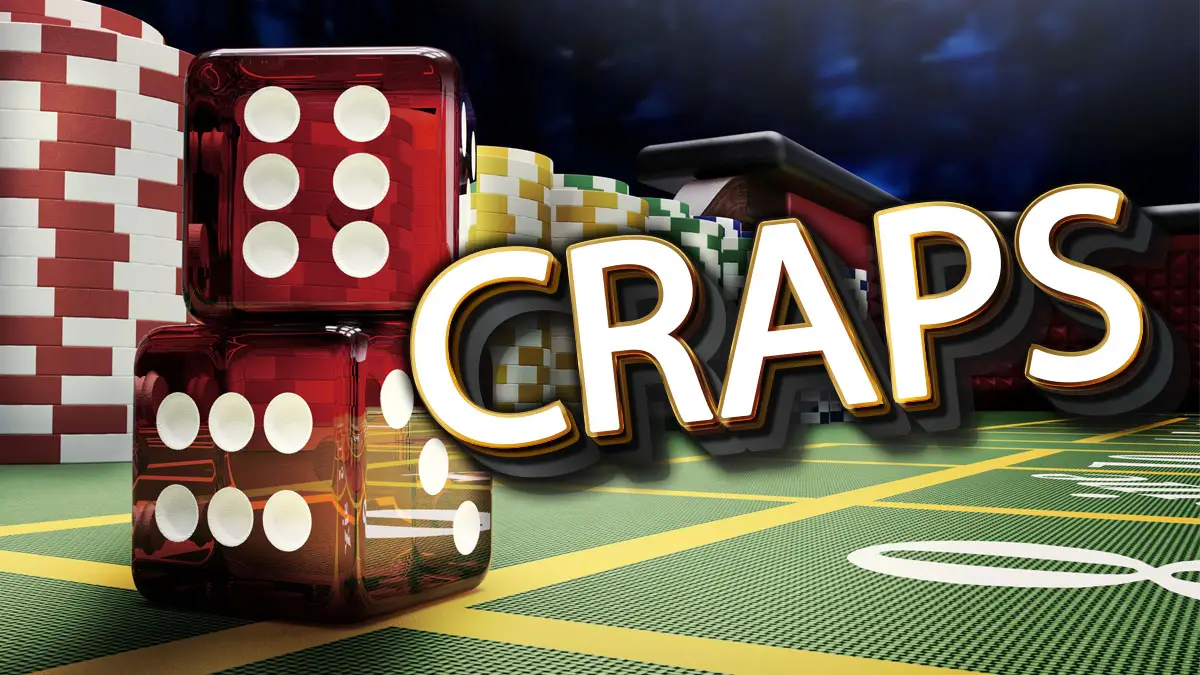Licensing of online casinos sets the boundaries of legality, transparency, and security for each craps gaming session. State and private regulators establish precise standards for platform operation: from RNG (random number generators) to bet processing rules. Checking the license affects not only the legal aspect but also the gaming scenario. In the case of craps, the license guarantees that the dice roll is controlled by a system that eliminates external manipulations. Unlike other games, craps is more difficult to certify because each bet depends on the physics of a random event — the double roll of two dice.
A player opening a craps table in a licensed system receives fixed payout coefficients, clear rules for side bets, and access to logs of the gaming session. A server approved by the regulator stores throw logs for a minimum of 90 days, and in certain jurisdictions, up to six months. This means that disputes can be resolved based on technical traces rather than words.

Geography of Licenses and Impact on Craps Mechanics
The conditions for licensing online casinos vary depending on the region. For example, with a license from the UKGC (United Kingdom), a platform is required to provide mathematically verified craps models with a fixed dispersion level of 1.41% for Pass Line bets. In the case of a license from Curaçao eGaming, the requirements for RNG transparency are relaxed, and the depth of logging is often limited to transaction IDs only.
American jurisdictions such as Nevada or New Jersey, as part of online casino licensing, require separate certification for gaming modules for each specific game, including craps. This means that the dice roll algorithm undergoes independent scrutiny for biases and malfunctions. As a result, players receive real fairness when betting on “Don’t Come” or “Hard 6” because each combination has a confirmed equal probability of occurrence.
Players need to understand that a license not only allows the operator to operate but also restricts them from certain aggressive strategies. In particular, a regulated casino cannot introduce additional delays in accepting bets after a roll-out, which is critical for players who prefer fast betting tactics between rolls.
Financial Guarantees and Protection When Playing Craps: The Importance of Online Casino Licensing
Licensing of online casinos requires the operator to keep client deposits in segregated accounts, separate from operational capital. This protects players’ bankrolls even in the event of the platform’s bankruptcy. When playing craps, where the range of bets can vary from 1 to 10,000 units in a single round, such guarantees become critical. Potential losses in the event of a server failure or canceled roll can reach tens of thousands, especially with simultaneous bets on Prop Bets and Come Line.
Licensed casinos have a identity verification mechanism in place, without which access to high-limit craps tables is impossible. This verification helps prevent fraudulent actions, especially when using arbitrage strategies based on timing delays in displaying rolls. Additionally, regulators require logging of attempts to cancel a bet after confirmation — a common issue in “live” sessions prone to manipulation.
Online casino licensing also entails mandatory payout insurance. If the winnings exceed the liquidity limit set, the operator must pay them within 30 days or engage an external insurer. For MGA (Malta) type licenses, the maximum payout delay does not exceed 7 days, while licenses from Panama may extend this period to a month.
Technical Aspects of Protecting Rolls and Ensuring Fair Bets
Playing craps requires flawless simulation of a physical action — the roll of two dice. Online casino licensing introduces mandatory RNG verification for resistance to repeat combinations. The NIST 800-22 standard is used, which includes over 15 different tests — from linear dependence to assessing the uniformity of distribution.
In addition to the random number generator, the license also involves certification of the interface: from the visual representation of the dice to the dynamics of their rotation. The algorithm must simulate free fall, without any preset angle or speed. In case of a violation of the animation logic, the license may be revoked or frozen until re-certification. This is especially important when using VR craps, where players interact with 3D dice manually, and movements are captured through tracking.
The document also regulates the operation of the “Bet,” “Remove,” and “Roll” buttons. When the “Roll” button is pressed multiple times, the result must remain unchanged, and attempts to duplicate the roll must be blocked. This is critical when using external scripts or macros. Modern licensed engines even track mouse movements before a roll and can reject a roll-out if an anomaly is suspected.
Legal Framework for Refunds and Dispute Resolution
Operators with a license are required to participate in international arbitration programs. For example, when obtaining a license from the Gibraltar Commission, an online casino becomes part of the eCOGRA ADR system. This means that a player facing non-payment of winnings on a “Field Bet” can file a complaint without involving a lawyer. The arbitration process accepts claims even for amounts as low as $10, with an average dispute resolution period of 12 days.
Online casino licensing also provides access to broadcast logs. In the case of craps, the operator is required to retain video recordings of sessions (including audio) during live game mode. These recordings serve as legal evidence for both the player and the operator. Discrepancies between the announced result and the display on the screen can result in fines of up to €250,000 and a license suspension for 6 months.
Regulators impose strict requirements on the cancellation procedure for a roll. Canceling a bet on “Place 8” after a roll-out is only allowed in case of a technical error confirmed by logs. Attempts to cancel for subjective reasons (e.g., “didn’t click in time”) are not considered. The license prohibits the substitution of values, even in the event of a widespread failure: each result is stored with a timestamp and SHA-256 hash.
List of Mandatory Licensing Elements for Organizing Craps in an Online Casino
Online casino licensing covers the entire technological and legal process of platform operation. Within regulatory requirements, each platform must include components such as:
-
Certified random number generator (RNG) — used for automatic rolls, must comply with NIST, GLI, or iTechLabs requirements.
-
Single roll-out fixation mechanism — prevents re-generation of the result even in case of connection loss or double-clicking.
-
User action log — logs every bet, mouse movement, cancellation, confirmation, and roll, with timestamps to the thousandth of a second.
-
Segregated account for client funds — separates player deposits from operational assets, allowing for fund return in case of liquidation.
-
24/7 arbitration system — provides a channel for reporting suspicions of manipulation, payout delays, or roll display failures.
-
Publication of theoretical return percentage (RTP) — craps must indicate RTP values for each bet type: Pass Line, Don’t Pass, Odds, and Side Bets.
-
Access control to high-limit tables — ensures user filtration by age, region, and verification level.
-
Protection against scripts and macros — the engine must respond to repetitive signals emulating rolls, with action blocking and logging.
-
Certificate for the craps table interface — each animation, physical model, and bone visualization algorithm undergo separate testing.
-
Retention period for game logs and video recordings — a minimum of 90 days for automated play, a minimum of 180 days for live mode.
Control of Bonus Policy and Fairness of Promotions in Craps
Bonus offers are a key element in attracting players. Online casino licensing restricts the operator’s freedom in this matter. Specifically, it is prohibited to introduce bonuses with unattainable wagering conditions on craps bets. If the Wagering Requirement exceeds 100×, the license requires mandatory player notification in a separate window.
Furthermore, campaigns where a bonus is only valid for specific combinations are prohibited. For example, if a bonus is only active on “Any Seven,” the license deems it discriminatory against gaming strategies. All types of bets — from “Buy 4” to “Lay 10” — must be allowed when wagering the bonus on equal terms.

Licensed casinos are required to publish bonus conversion rates to real money. For example, when placing a $50 bet on “Come Bet” with bonus funds, the conversion ratio must be at least 1:1 unless explicitly stated otherwise. Violating these rules is considered unfair competition and is subject to penalties of up to 10% of monthly turnover.
Guarantee of Fair Play
Online casino licensing acts as an invisible judge at the craps table. It establishes a system of transparency where each dice movement is confirmed by an algorithm, each bet is logged, and every action can be verified. Without a license, a platform turns into a chaotic environment with no legal framework, and craps bets become a risk devoid of controlled parameters.
 en
en  de
de  ar
ar  es
es  hi
hi  fr
fr  nl
nl  ru
ru  it
it  pt
pt  el
el 









